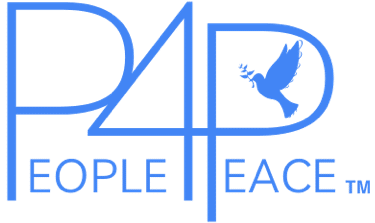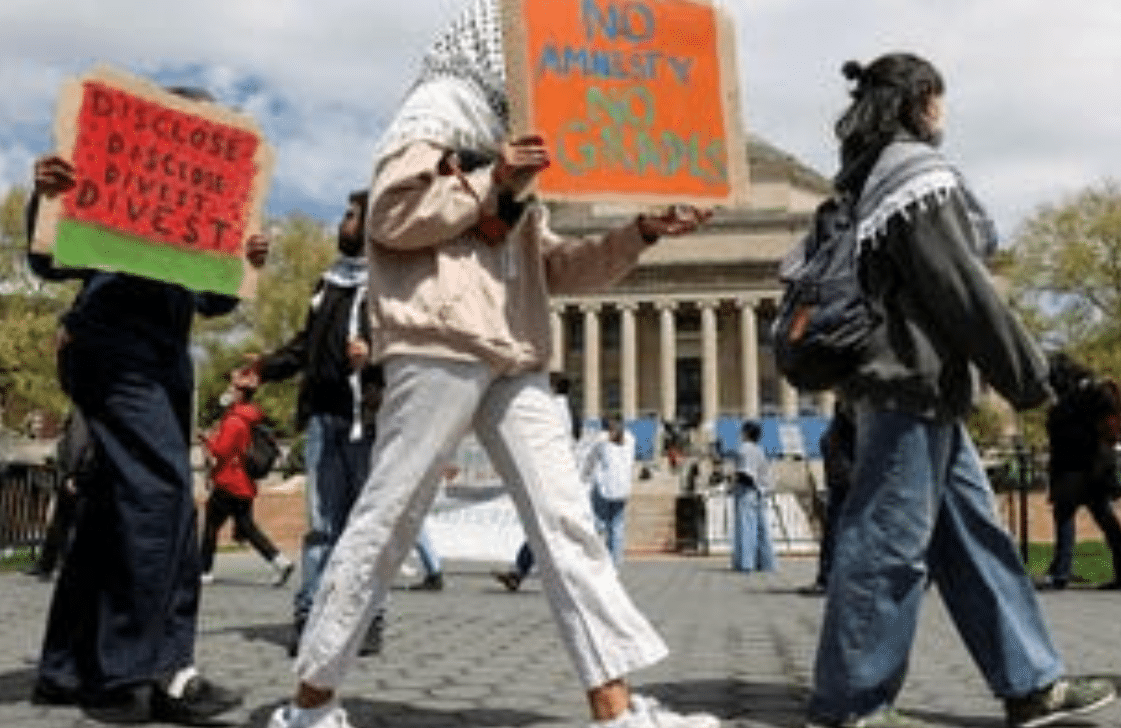Columbia University played an important role in my life. I spent five years in the graduate school and the school of international affairs studying for my doctorate. My mentors – Professors J.C. Hurewitz, Mark Kesselman, Charles Issawi, and others – gave me a sound foundation in the study of international relations and the Middle East.
In those years Columbia lived up to its reputation as one of the finest universities in the United States.
Dissent and protest have always been a part of the Columbia experience. I remember watching in fascination as Columbia became the epicenter of protest against the Vietnam War. The campus was always alive, as was the debate and discourse among faculty and students.
- Jewish students are no longer safe at Columbia University
- Anti-Israel protesters at Columbia vow to stay put, as campus wars spread
- How can left-wingers hail Hamas atrocities against Israelis as ‘Palestinian resistance?’
Indeed, Columbia’s core curriculum for undergraduates in the humanities and social sciences has provided generations of students with the tools for critical thinking about ideas – democracy, freedom, respective responsibilities of state and society – and the importance of respectful debate.
[The Haaretz Op-Ed continues]
Even more, some of these protestors, as well as some on the campus, are extolling what Hamas did on October 7, thus associating themselves with the slaughter and rape and hostage taking. Some are calling for “1,000 October 7s” or for a “global Intifada” whose significance goes far beyond the Palestine-Israel conflict.
Were the protestors on the campus or outside criticizing Israel over the killing of significant numbers of Palestinian civilians, were they to demand an immediate ceasefire, or were they protesting Israeli practices regarding humanitarian aid, they would surely be within their rights. Were they to insist that the university assure fair representation on panels and in conferences on the Israel-Palestine conflict, so that their voices could be heard, they would surely be within their rights. But these are not what some of the protestors are all about.
The protestors outside the gates and some on campus have attempted to hijack the protest. They have directed their venom and aggression at Jews, supporters of Israel, and anyone else who doesn’t buy into their murderous rhetoric.
I almost never post anything on social media other than articles I have written or articles by others that are worth reading. But I posted two questions the other day that demand responses from serious people who seek peace and reconciliation, and especially from the Palestine Liberation Organization and the Palestinian Authority, the representatives of the Palestinian people:
“Where are those in the Palestinian, Palestinian-American, and pro-Palestinian community who should be telling those who support Hamas and threaten Jewish students that they are hurting the Palestinian cause? At a minimum, why have you failed to condemn them and their tactics?”
As the Columbia administration and other universities grapple with this challenge, it is also important for American Jewish leaders to keep their focus on protecting free speech and academic freedom and ensuring the safety of all students – Jewish and non-Jewish – on college campuses.
It is wrong to advise students to go home and stay home. It is wrong to advise students not to apply to the best universities. It is wrong to pull support from these universities. It is wrong for politicians to try to capitalize on the situation. And it is wrong for the prime minister of Israel to make incendiary comments comparing the situation on American college campuses to Nazi Germany.
Let Columbia and other universities figure this out. Now is a time to double down on higher education and to defend the very values that universities like Columbia have been instilling in their students – critical thinking and debate about ideas and inclusivity, designed to foster creative and respectful discourse that defines a liberal education.
There is no one-size-fits-all playbook for dealing with protests that go beyond civil discourse. Each college and university is a community in which it takes the commitment of faculty, students, and administrators to try to ensure that a few intemperate activists and outside agitators do not hijack legitimate protest.
Those of us who care about peace in the Middle East and civil discourse on our college campuses must rally to support those administrators, faculty, and students who seek to advance education in an atmosphere free of threats and intimidation. We need to support and strengthen this community within our colleges and universities.
Daniel Kurtzer is the S. Daniel Abraham Professor of Middle East policy studies at Princeton University’s Woodrow Wilson School of Public and International Affairs. During a thirty-year career in diplomacy, he served as the United States Ambassador to Israel and to Egypt. Twitter: @DanKurtzer
View this Haaretz Op-Ed from April 26th

